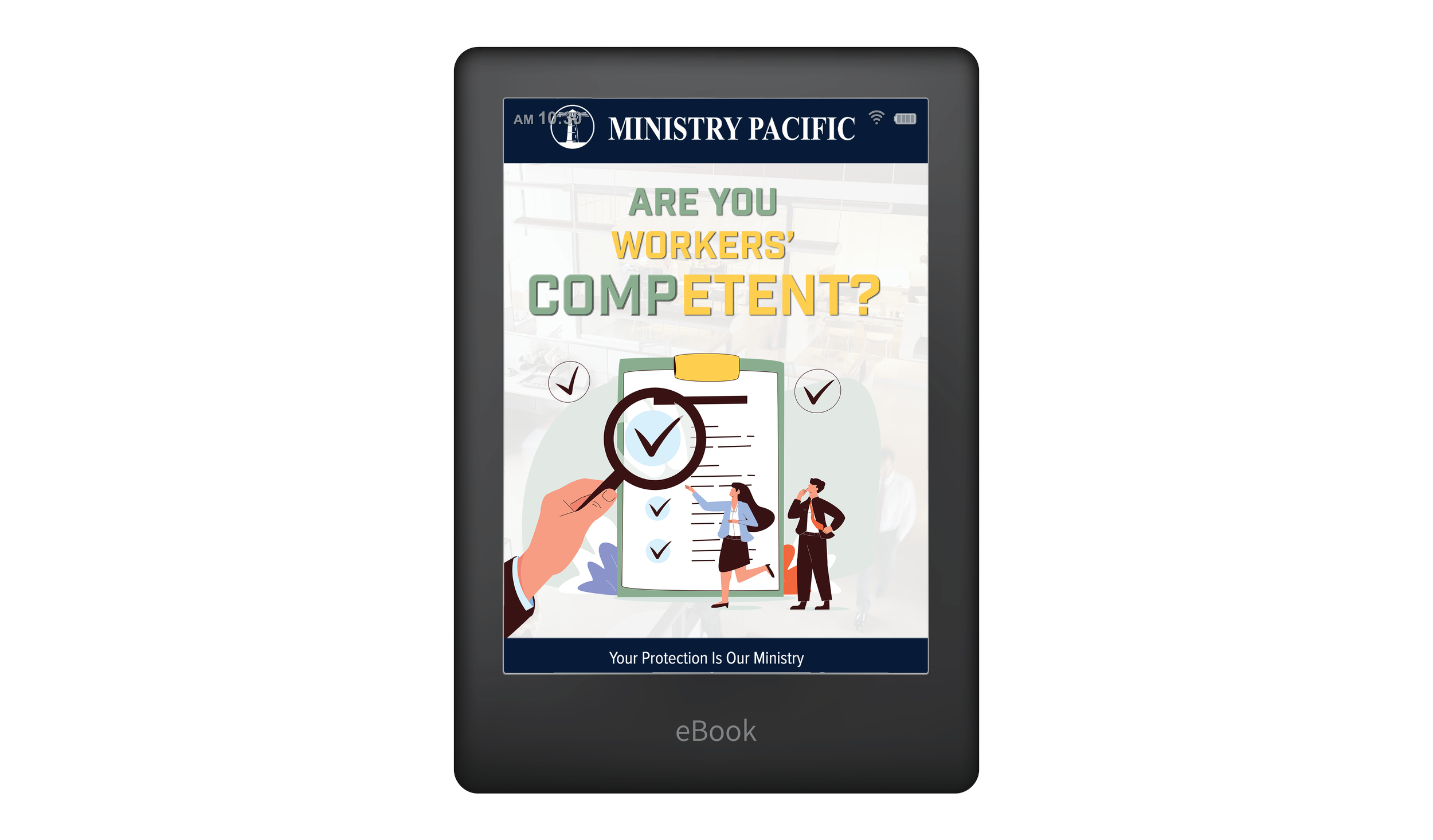Make sure employees are covered and your contractors meet California’s strict definition of their role.
Houses of worship are unique, but still subject to employment law. This includes the mandate to provide workers’ compensation insurance for all employees. Are all of your workers covered?
What about contract (1099) workers?
California has a strict definition of contract workers. As a result, many church contractors (1099 workers) are actually employees under the law. If church employees are misclassified as contractors, the church could be subject to fines and is out of compliance with workers’ comp requirements.
Overview of Workers’ Compensation for Churches and Faith-Based Organizations
Workers’ compensation for contractors vs. employees
Workers are designated as contractors for many reasons – some legal and some not. This factor ties into workers’ compensation law because misclassifying employees as contractors deprives them of mandatory coverage. Correctly classifying employees is a serious matter. Employers’ failure to do so can result in exorbitant daily fines and even jail time.
In addition, payroll services provider ADP reports that misclassification can result in:
Wage law violations
Unpaid employment taxes
I-9 violations
Unemployment insurance shortfalls
Unpaid workers' compensation premiums
Improper employee exclusion from benefits
Anti-discrimination violations
Failure to provide job-protected leave
Failure to provide the required employment notices
“The form used to report wages has no bearing on the church’s responsibility to provide workers’ compensation insurance.”
GuideOne, a workers’ compensation insurer for faith-based organizations, continues: “Whether an employer is responsible for workers’ compensation insurance is based on the degree of the employer/employee relationship. If an employer/employee relationship exists, then the employer is responsible for workers’ compensation insurance. If a relationship does not exist, as with an independent contractor, then the employer may not be responsible for workers’ compensation insurance.”
OVERVIEW OF WORKERS’ COMPENSATION
🏥 Workers' Compensation Basics A state-mandated insurance system that guarantees medical care and compensation for employees injured on the job, operating on a no-fault principle.
📋 Coverage Requirements All employees, including part-time and seasonal workers, must be covered, with specific nuances around independent contractors and volunteers.
⏰ Claim Reporting Prompt reporting is crucial – claims reported within the first week are significantly less expensive and easier to manage.
🔄 Return-to-Work Program Developing a structured program that helps injured employees return to work quickly reduces recovery time, maintains morale, and minimizes compensation costs.
🚨 Legal Compliance No religious exemption exists for workers' compensation, and non-compliance can result in substantial fines (potentially up to $10,000 per day).
👥 Responsibility Assignment Typically, the HR function or person responsible for employee benefits should manage workers' compensation processes.
🛡️ Employer Protections Workers' compensation is the official and sole remedy for on-the-job injuries, preventing employees from suing for workplace injuries except in cases of gross negligence.
📊 Cost Management Employers can control costs through workplace safety programs, prompt claim reporting, and effective return-to-work strategies.






